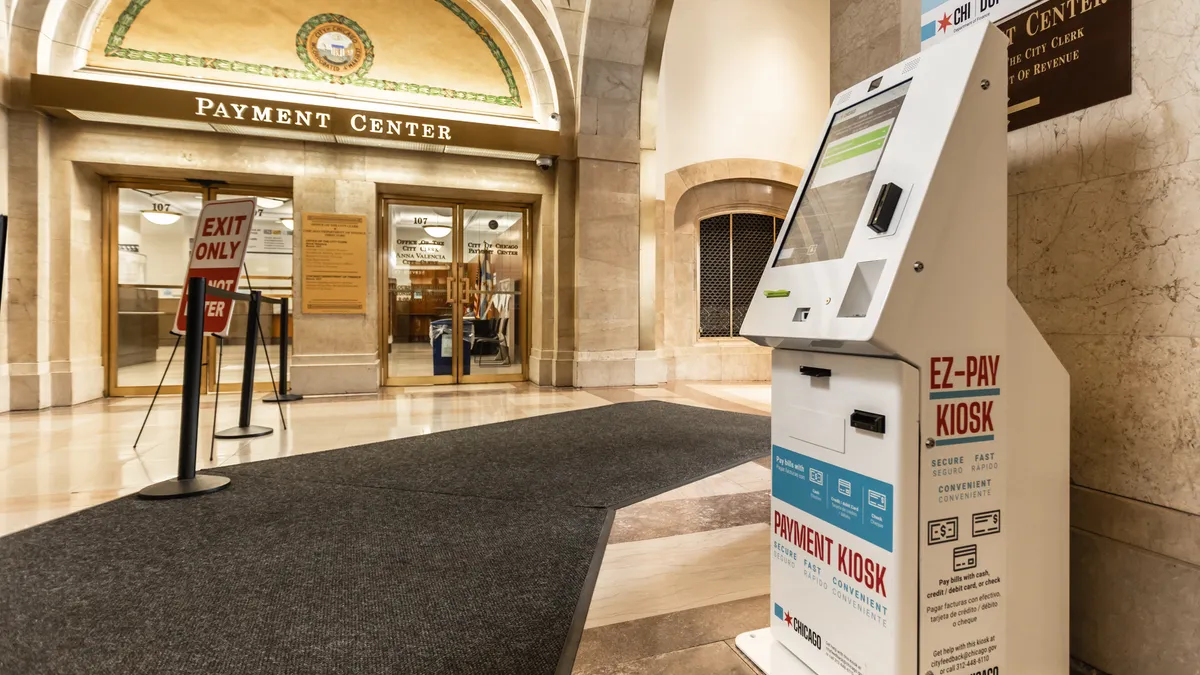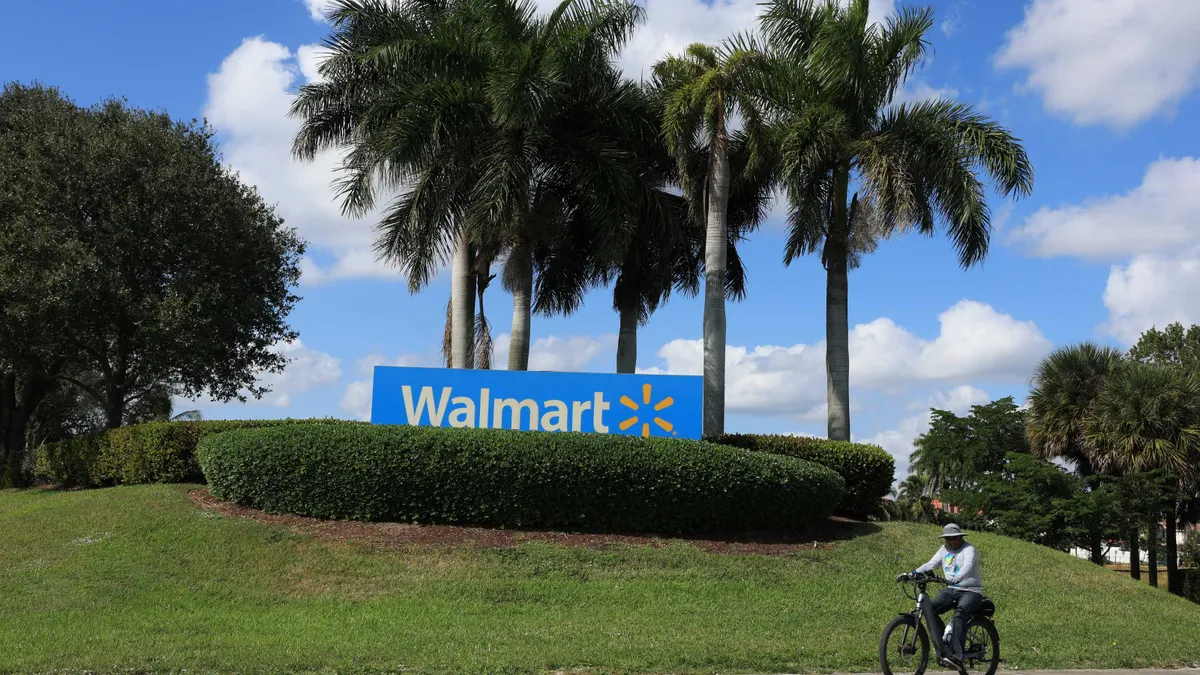City governments nationwide are joining a trend to make more cash payment options available to consumers looking to pay their bills, with Chicago undertaking a significant expansion and New York installing new kiosks for the first time next month.
Cities take in more income when consumers have additional ways to pay for parking tickets and taxes, while residents benefit from conveniently placed kiosks that don’t charge them fees and that have access to their data.
Chicago installed another 30 kiosks this summer under a contract with kiosk vendor and software provider CityBase, and plans to pepper the city with 119 kiosks by next June, up from 74 now.
Once the additional kiosks are installed next year the city will have reached its goal for now of placing them in every one of its 50 wards, City Comptroller Reshma Soni said in an interview Tuesday.
Somewhat surprisingly in the age of digital solutions, cash options generally are proliferating. A host of companies, such as PayNearMe and Green Dot, are seeking to offer more cash pay options, including at stores such as Walmart and Family Dollar.
People in Chicago can use the EZ-Pay machines to pay city parking tickets and citations as well as business taxes and city utility bills such as for water, with cash or check as well as credit, debit, and prepaid cards. CityBase is also the vendor for Chicago’s online portal doing the same.
“Accessibility is a huge key to day-to-day quality of life,” Soni said, explaining that the city is trying to make paying bills less burdensome with respect to locations and fees. “That is a push overall with this mayor.”
She’s referring to Chicago Mayor Lori Lightfoot who won election to the role in 2019 after her predecessor, Rahm Emanuel, didn’t seek re-election in the country’s third-largest city. Still, it was during Emanuel’s administration that Chicago awarded kiosk company CityBase a $5.7 million contract in 2017 to roll out the kiosks.
“The CityBase kiosks provide our customers with real-time information about their balance, helping them to avoid fees and penalties,” Soni said in a press release this week regarding the summer expansion. The other benefit is that the self-service kiosks reduce contact between users and staff as the deadly COVID-19 pandemic continues to impact residents, the release said.
Chicago-based CityBase, which facilitates the payments on behalf of Chicago and other municipalities as well as utilities, will also begin placing kiosks in New York City next month with options there to pay vehicular tickets, said the company’s CEO Mike Duffy.
“We are creating a new platform for these governments and utilities to interact with what is one of the hardest demographics to reach,” Duffy said in an interview Tuesday.
Those who choose to pay in cash are often low-income and might otherwise pay $2 to $6 per transaction elsewhere, he said. Duffy estimates that about 27% of Chicago’s households, or about 260,000 of households, prefer to pay with cash for whatever reason.
“They have less options and historically the burden has been turned back onto them,” Duffy said.
In Chicago, the city and the company teamed up to place kiosks at libraries and police stations across the city, tucking them into lobbies and corridors. Their focus was on picking locations where people could access them during a wide range of hours (the police stations are open around the clock) and where they would feel safe using them, Soni said.
She emphasizes that there is no cost to use the kiosk to pay bills in cash. That’s a significant savings for residents who might otherwise be charged per transaction at corner commercial outlets. If the residents use a credit card at the kiosks, they’ll pay the same 2% card interchange fee that they would pay if they were making the payments online.
“The good thing about this, thanks to the agreement, is that CityBase is the one that’s bearing the cost of the kiosks,” she said.
Nonetheless, Chicago pays CityBase a $1 fee for every transaction and, if a kiosk doesn’t have at least $425 in business per month, the city will make up the difference. Aside from that, the only other cost is employee overhead at about $200,000 annually, she said.
Duffy declined to comment on CityBase’s profitability. In 2019, it merged with other government software service providers to become part of publicly-traded GTY Technology Holdings. A regulatory filing by the parent company shows CityBase had $8.9 million in annual revenue last year that outpaced its $6.7 million in annual costs.
CityBase isn’t the only company peddling kiosk services. Tulsa-based U.S. Payments, among others, also deploys such kiosks, though they all vary with respect to whether they service municipalities, private businesses, such as utilities, or both.
CityBase is a significant player with kiosks in eight of the 20 biggest cities, Duffy said. One city that isn’t in the company’s fold yet is Los Angeles, but Duffy hopes to change that sometime soon.
Correction: The story was updated to correct the number of Chicago households that prefer cash use.





















